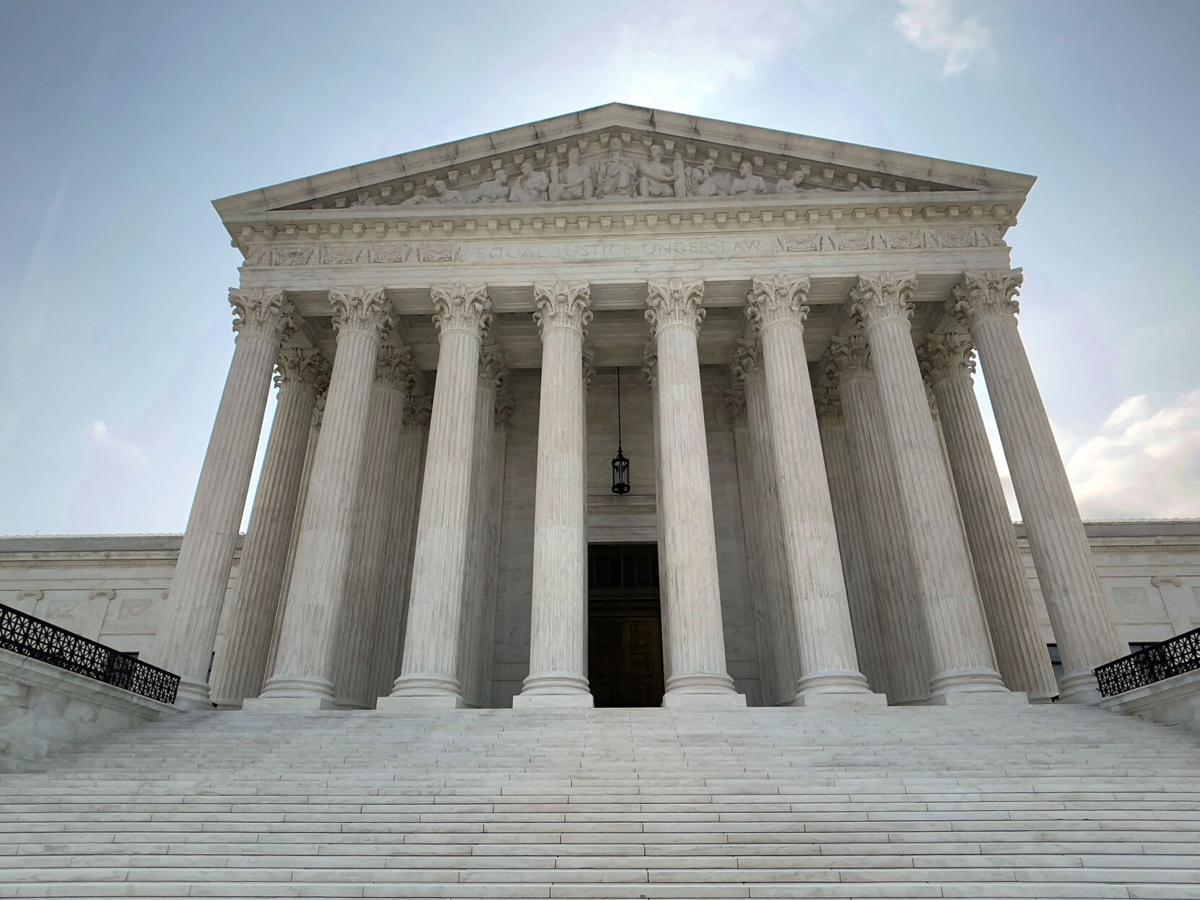Arizona’s top Republican lawmakers can’t avoid having to answer questions about their backing of legislation making it more difficult to register to vote.
Without comment Monday, the U.S. Supreme Court rejected a claim by House Speaker Ben Toma and Senate President Warren Petersen that any inquiries into the background of how 2022 legislation became law runs afoul of legislative privilege. The justices did not explain their decision.
But it is in line with prior rulings by the trial judge who is hearing the challenge against two Arizona laws brought by several voting and civil rights groups as well as by the U.S. Department of Justice.
The challengers contend the laws were enacted with “discriminatory intent.” They seek to question Toma and Petersen to buttress their arguments, and U.S. District Court Judge Susan Bolton said the questions are relevant.
“The information sought in discovery does in fact ‘go to the heart’ of plaintiffs claim and the constitutionality of the voting laws,’’ Bolton wrote in her order compelling Toma and Petersen to comply, the order the Supreme Court declined Monday to disturb. “Motive is often most easily discovered by examining the unguarded acts and statements of those who would otherwise attempt to conceal evidence of discriminatory intent,” the judge wrote.
“I will comply,’’ Petersen told Capitol Media Services. There was no immediate comment from Toma.
Being challenged are two separate laws approved by the Republican-controlled Legislature.
One sought to limit who can vote for president. Bolton already ruled that provision is illegal, saying state laws requiring proof of citizenship to cast a ballot in presidential elections are trumped by the National Voter Registration Act.
But she has yet to rule on several issues that remain.
One would require county recorders to forward to the attorney general the names of people who are suspected of trying to register without being citizens. Challengers say that referral can be based solely on the inability of the recorder to locate these names in certain specific databases. They say use of these databases amounts “to intentional race, national origin, and alienage discrimination.’’
Also yet to be decided is the legality of a new requirement for people to provide documentary proof of residency, above and beyond what already was necessary.
The challengers laid out a series of issues they want to discuss with Petersen and Toma ahead of the upcoming trial.
One is any instances the Legislature has identified, was aware of, or was provided evidence that someone who is not a U.S. citizen registered to vote “which supported the introduction, passage, and/or enactment of the challenged laws.’’ Ditto about any non-U.S. citizen having voted.
They also want to know whether lawmakers considered if the laws would affect certain groups of voters more than others, including racial or ethnic groups, naturalized citizens, disabled voters or voters in any particular age group.
Also sought are any communications between members of the Legislature with outside groups, including the Free Enterprise Club, which backed the restrictions, regarding the purpose or potential effects of the laws.
They also want to know “the objectives motivating the Arizona Legislature’s introduction, passage and enactment of the challenged laws, as well as any state interest believed to be advanced by the challenged laws.’’
The groups seeking to void the laws, including the Justice Department, contend the changes “amount to intentional race discrimination in voting.’’
None of this would have become an issue and reached the Supreme Court had Petersen and Toma stayed out of the case. In fact, neither were defendants, as the challenged laws were being defended by Republican former Attorney General Mark Brnovich.
But Attorney General Kris Mayes, a Democrat who took office in January, said she was not interested in defending some aspects of the law. So the two GOP leaders got permission from Bolton to intervene and become defendants.
That new status provided the legal basis for challengers to ask them to answer certain questions.
Attorneys for the legislative leaders said they already produced more than 90,000 pages of documents and answers to written questions. They refused to provide some other documents — the petition to the Supreme Court does not say how many — and declined to answer other questions, citing legislative privilege.
In seeking high court relief, Toma and Petersen’s lawyers gave a hint of what they don’t want to disclose. They said that leaving Bolton’s decision undisturbed could result in challengers questioning “not only their participation in the legislative process, but also private conversations with other legislators or third parties about the voting laws.’’
Get your morning recap of today's local news and read the full stories here: tucne.ws/morning
In its broadest sense, legislative privilege protects lawmakers from being sued over statements they make during debate. It also has sometimes been applied to shield them from having to discuss their deliberative process or motives.





